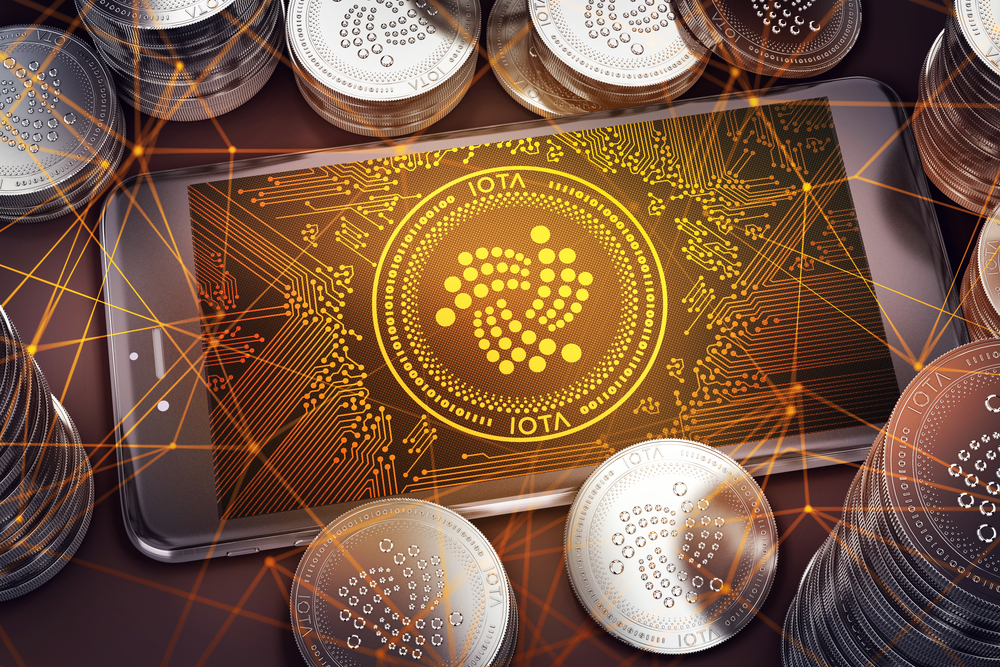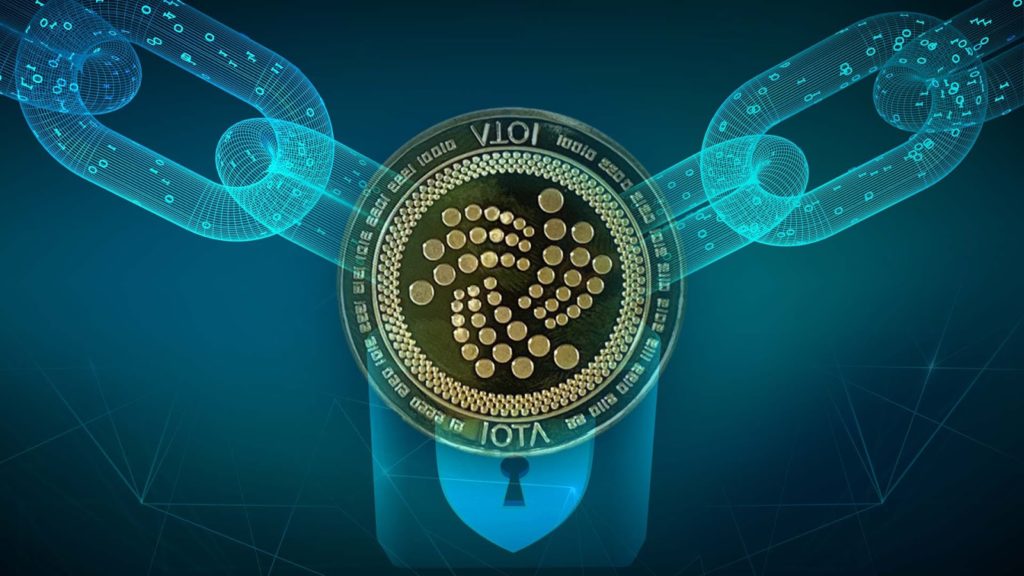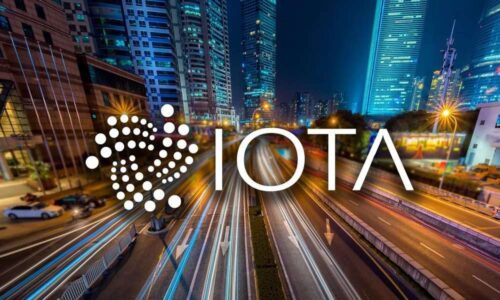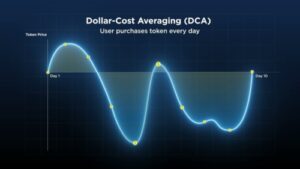IOTA is a distributed ledger technology (DLT) designed for the Internet of Things (IoT) with the primary goal of enabling secure, efficient, and scalable data and value transfer between machines. Unlike traditional blockchain systems, IOTA uses a unique structure called the tangle, which is based on a directed acyclic graph (DAG). This structure allows IOTA to offer no cost transactions and high scalability, making it an ideal solution for the ever-expanding IoT ecosystem. In this article, we will explore various real-world applications that are utilizing IOTA to revolutionize industries and daily life.
Table of Contents

In-Depth Analysis of IOTA’s Impact on Business and Daily Life
Supply Chain and Logistics
Transparency and traceability: can be used to track products from the manufacturing stage to the point of sale, ensuring transparency and traceability throughout the supply chain. This helps reduce the risk of counterfeit products and ensure their authenticity acting stage to the point of sale, ensuring transparency and traceability throughout the supply chain. By using IOTA, companies can better monitor their products and ensure that ethical and sustainable practices are being followed.
Smart contracts: enables the creation of smart contracts, which can automate processes like payment and delivery, improving efficiency and reducing the potential for errors or disputes. These smart contracts can be customized to suit specific business requirements and can be used to manage shipping agreements, product quality checks, and other essential steps in the supply chain.
Real-time data sharing: allows businesses to share data in real-time across the supply chain, enabling better collaboration and decision-making. This is particularly useful for managing inventory levels and ensuring that suppliers and retailers have accurate information about product availability and demand.
Smart Cities
Mobility and transportation: can be used to facilitate machine-to-machine (M2M) transactions in smart transportation systems, such as electric vehicle charging stations, smart parking, and public transportation management. This helps create an efficient and eco-friendly urban transport infrastructure that benefits both residents and the environment.
Traffic management: can be integrated with traffic management systems, enabling dynamic traffic routing and real-time congestion monitoring. This allows city authorities to better manage traffic flow, reduce congestion, and improve air quality.
Waste management: can help optimize waste collection routes and schedules, leading to a cleaner and more sustainable environment. By integrating IOTA with waste management systems, cities can reduce the resources required for waste disposal, thereby reducing their carbon footprint.
Energy management: can be used to manage energy consumption and distribution in smart grids, improving efficiency and reducing costs. With IOTA, cities can implement demand-response strategies, optimize energy use during peak hours, and facilitate the integration of renewable energy sources.
eHealth
Secure data sharing: enables secure, tamper-proof data sharing between healthcare providers, patients, and insurance companies, ensuring data privacy and compliance with regulations like GDPR. This helps improve the overall quality of healthcare services as well as patient satisfaction and trust.
Remote monitoring: can facilitate the exchange of data between IoT devices and healthcare providers, enabling remote monitoring of patients and more personalized care. This can lead to better patient outcomes and reduced healthcare costs, as providers can detect and address potential health issues before they escalate.
Research and development: can be used to securely share medical research data among institutions, accelerating the development of new treatments and therapies. By creating a secure and transparent platform for data exchange, IOTA can facilitate collaboration between researchers and expedite the discovery of new medical innovations.
Industrial IoT
Predictive maintenance: can be used to securely transmit data from IoT sensors, enabling real-time analysis and predictive maintenance of industrial equipment, reducing downtime and maintenance costs. By identifying potential issues before they result in equipment failure, businesses can save money and maintain high levels of operational efficiency.
Smart manufacturing: can be used to optimize production processes, enable machine-to-machine communication, and improve overall efficiency in smart factories. By integrating IOTA with production systems, manufacturers can automate workflows, reduce waste, and improve product quality.
Asset tracking: can be used to track the location and status of assets in real-time, improving inventory management and reducing the risk of theft or loss. With IOTA, businesses can gain better visibility into their assets and optimize resource utilization. Digital Identity
Self-sovereign identity: enables the creation of digital identities that users can control and manage, ensuring data privacy and security. These self-sovereign identities can be used to access various online services, reducing the need for multiple usernames and passwords.
KYC/AML compliance: can be used to facilitate Know Your Customer (KYC) and Anti-Money Laundering (AML) processes, streamlining onboarding and reducing the risk of fraud. By automating identity verification, IOTA can help businesses maintain compliance with regulatory requirements and protect their customers’ sensitive information.
Secure access control: can be used to authenticate users and grant access to services or facilities, improving security and the user experience. By using IOTA for access control, businesses can prevent unauthorized access and protect sensitive data.

Decentralized Finance(DEFI)
No cost transactions: no cost transactions make it an attractive option for decentralized finance applications, reducing costs for users and enabling micropayments. This is particularly beneficial for users in developing countries, who may not have access to traditional banking services and rely on alternative financial solutions.
Data marketplace: can be used to create decentralized data marketplaces where users can buy and sell data securely and transparently. These marketplaces can facilitate the exchange of valuable information and help businesses make data-driven decisions.
Tokenization: can be used to tokenize assets like real estate, stocks, and commodities, enabling fractional ownership and increasing liquidity. By tokenizing assets, IOTA can democratize access to investment opportunities and create new financial products and services.
Agriculture and Food Industry
Smart farming: can be integrated with agricultural IoT devices, enabling farmers to monitor and optimize their operations in real-time. By using IOTA for data collection and analysis, farmers can improve crop yields, reduce resource consumption, and enhance the overall sustainability of their operations.
Food safety and traceability: can be used to track food products from farm to fork, ensuring transparency and traceability throughout the entire food supply chain. This can help prevent food-borne illnesses, protect consumers, and improve trust in food products.
Supply chain optimization: can be used to streamline and automate supply chain processes in the agriculture and food industries, reducing costs and improving efficiency. By integrating IOTA with existing supply chain systems, businesses can better manage their inventory and ensure that perishable goods are delivered in a timely manner.
Environmental Monitoring and Sustainability
Pollution monitoring: can be used to collect and analyze environmental data, enabling real-time monitoring of air and water quality. By providing accurate and timely information about pollution levels, IOTA can help cities and communities address environmental challenges and improve public health.
Wildlife conservation: can be used to monitor wildlife populations and habitats, facilitating conservation efforts and helping to protect endangered species. By using IOTA for data collection and analysis, conservation organizations can better understand the factors affecting wildlife populations and implement targeted strategies to protect vulnerable ecosystems.
Climate change monitoring: can be used to gather and analyze climate data, helping researchers better understand the effects of climate change and develop effective mitigation strategies. By leveraging IOTA’s secure and scalable infrastructure, researchers can access and share climate data on a global scale, accelerating the development of climate-resilient solutions.
Gaming and Entertainment
Virtual economies: can be used to create virtual economies within gaming and entertainment platforms, enabling the secure and efficient exchange of digital assets such as in-game currencies, virtual items, and collectibles. By using IOTA for in-game transactions, developers can reduce fees and improve the overall gaming experience for players.
Digital rights management: can be used to securely manage digital content rights, such as music, movies, and books, ensuring that creators are fairly compensated for their work. By leveraging IOTA’s decentralized infrastructure, content creators can protect their intellectual property and distribute their work securely and transparently.
Augmented and virtual reality: can be used to power immersive experiences on augmented and virtual reality platforms, enabling the seamless exchange of data and value between users and applications. By integrating IOTA with AR and VR technologies, developers can create more engaging and interactive experiences for users.
Education and Research
Secure data sharing: can be used to facilitate the secure and transparent exchange of academic and research data, fostering collaboration and accelerating the development of new knowledge. By using IOTA for data sharing, academic institutions can protect sensitive information and ensure compliance with data privacy regulations.
Digital credentials: can be used to issue and verify digital credentials, such as diplomas, certificates, and professional licenses, reducing the risk of fraud and improving trust in the educational system. By leveraging IOTA’s secure and decentralized infrastructure, educational institutions can streamline the process of issuing and verifying credentials, improving efficiency and transparency.
eLearning platforms: can be used to power eLearning platforms, enabling the secure exchange of educational content and value between students, educators, and institutions. By integrating IOTA with eLearning systems, educational providers can offer more accessible and cost-effective learning opportunities for students around the world.
IOTA’s unique Tangle technology and its ability to facilitate secure, no cost , and highly scalable transactions make it an ideal solution for a wide range of real-world applications. From supply chain management to smart cities, eHealth, and beyond, IOTA is revolutionizing industries and daily life, driving innovation, and enabling a more connected, efficient, and sustainable future. As the IoT ecosystem continues to expand, the use cases for IOTA are virtually limitless, highlighting the immense value and potential of this cutting-edge technology.




